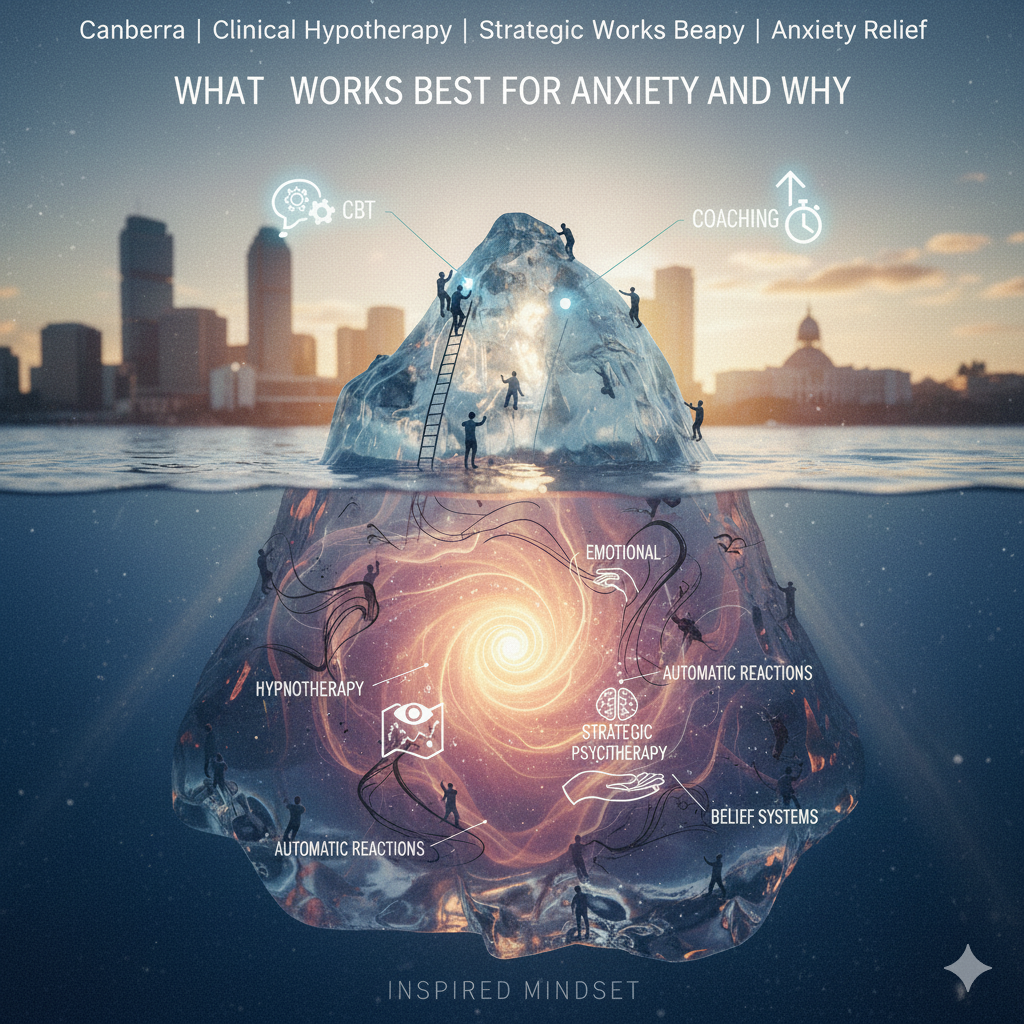Ozempic in Australia: Effective Treatment for Weight Loss or Risky Shortcut?
In recent years, Ozempic has become one of the most talked-about medications in Australia, particularly among people who are looking for effective solutions for type 2 diabetes. Originally designed as a prescription treatment to help regulate blood sugar levels in individuals with type 2 diabetes, Ozempic has quickly gained popularity for its unexpected benefit, helping users shed excess weight. This dual-action effect has positioned it as a breakthrough drug in the eyes of many.
With more people seeking out Ozempic for weight loss, even those who don’t have diabetes are becoming increasingly interested in its use. As a result, demand for the drug has skyrocketed in Australia. Pharmacies across the country have reported supply shortages, making it difficult for those who rely on it for diabetes management to access their prescribed medication. This growing tension between weight loss trends and essential diabetes treatment has triggered concern among healthcare providers and patients alike.
Despite its potential benefits, Ozempic is not without risk. As more people begin using the drug, reports of side effects and health complications have emerged. Some individuals may experience serious adverse effects, including major cardiovascular events, increased risk of heart disease, gallbladder disease, and persistent severe abdominal pain. There are also concerns about its links to possible thyroid tumors and thyroid cancers, specifically medullary thyroid carcinoma, which raised questions about its long-term safety, especially in users taking it solely for weight loss.
Because of these risks and the unpredictable nature of side effects, many Australians are seeking safer, non-pharmaceutical alternatives to prescription medications to achieve their weight loss goals. One such approach that’s gaining attention is hypnosis therapy for weight loss. Rather than relying on chemicals to suppress appetite, hypnotherapy works by reshaping thought patterns, shifting unconscious behaviours around food, motivation, and self-control.
This blog offers a comprehensive overview of Ozempic’s benefits, risks, availability in Australia, and its mechanism of action within the body. It also explores the growing popularity of hypnotherapy as a natural alternative to Ozempic and why it may offer a more sustainable, side-effect-free approach to weight loss and weight management.
Why Is Ozempic So Popular?
Ozempic’s rise in popularity can be attributed to a combination of clinical results, celebrity endorsements, and viral social media exposure. It’s not just a pharmaceutical success story it’s become a pop culture phenomenon.
Over the past few years, numerous celebrities and public figures have been rumoured to use Ozempic for weight loss, despite the fact that it is not officially approved for that purpose in Australia. High-profile mentions in interviews, red carpet events, and social media platforms like TikTok and Instagram have further fueled public interest, even though there are concerns about diabetic retinopathy complications. Influencers and wellness bloggers regularly post dramatic “before and after” photos, crediting the medication with helping them drop kilos quickly and with minimal effort.
Media coverage has amplified this trend, often portraying Ozempic as a kind of modern miracle drug. In a society that often equates weight with success, health, and beauty, it’s no surprise that a medication promising appetite control and visible results can also help reduce the risk of certain health issues, has become so desirable. The promise of effortless weight loss with a once-weekly injection is appealing to many, especially those who have tried traditional diets and exercise routines without success.
But this sudden demand hasn’t come without consequences.
As more people request Ozempic—sometimes without a medical need for it shortages have emerged across Australia, impacting those with diabetes who depend on it for blood sugar management. Pharmacists and doctors have raised concerns about the ethical implications of using prescription drugs for off-label purposes, particularly in cases of kidney disease worsening when the supply is limited.
At the same time, reports of side effects have begun to surface, ranging from mild gastrointestinal discomfort to more severe outcomes such as low blood sugar, pancreatitis, kidney disease worsening, and even potential links to thyroid cancer. These concerns have prompted many people to think twice before seeking out Ozempic purely for weight loss.
Reconsidering Weight Loss: Are There Safer Alternatives?
Because of these risks and rising supply challenges, more Australians are exploring natural, non-pharmaceutical alternatives to support long-term weight loss. One such method that has gained attention is hypnotherapy — a therapeutic process that uses guided relaxation and suggestion to shift unconscious behaviors around food, stress, and self-image.
Rather than artificially suppressing appetite, hypnotherapy aims to retrain the brain’s relationship with food and lifestyle habits, often leading to more sustainable and empowering outcomes without relying on oral medications.
What is Ozempic?
Ozempic is a prescription medication originally developed to help people with type 2 diabetes manage their blood sugar levels more effectively. Its active ingredient, semaglutide, belongs to a class of drugs known as GLP-1 receptor agonists, which work by mimicking a hormone naturally produced in the body that regulates blood sugar and appetite.
Ozempic enhances the body's own insulin production and slowing down the rate at which food leaves the stomach. By doing so, it helps reduce blood sugar spikes after meals and lowers the overall glucose load in the bloodstream. This makes it a valuable treatment for people with type 2 diabetes who struggle to control their blood sugar with diet and exercise alone.
Lose Weight: An Unexpected Effect of Ozempic
Interestingly, over time, doctors and researchers began to notice that many people on the medication were also losing weight even though it was originally made to treat diabetes. Because of this, Ozempic has now become widely used as a weight loss drug, even for individuals who do not have diabetes. But please remember that Ozempic is not approved for weight loss in Australia.
Adverse Reactions
While Ozempic may offer certain benefits, it has also been linked to various health concerns. Some users have reported experiencing low blood sugar episodes, especially when combining the medication with dietary changes. There are also concerns about more serious risks, including potential connections to chronic kidney disease and the development of thyroid tumors as well as medullary thyroid carcinoma.
These issues highlight the importance of consulting a medical professional before using Ozempic, particularly if you have pre-existing health conditions or are considering the drug solely for weight loss purposes.
How Ozempic Supports Weight Loss
One of the most surprising effects of Ozempic is its ability to help people lose weight. Unlike traditional weight-loss medications that work by speeding up metabolism or blocking fat absorption, Ozempic works differently; it reduces appetite naturally by mimicking a hormone in the body called GLP-1. Here’s how Ozempic supports weight loss:
- It makes you feel full longer, meaning you eat less without feeling hungry.
- It slows digestion and prevents frequent snacking or overeating.
- It lowers food intake and helps people avoid binge eating or emotional eating triggers.
- It regulates metabolism, which makes it easier for the body to process calories efficiently.
Although these mechanisms can be effective, some individuals may experience low blood sugar and thyroid tumor as side effects, specifically when the medication is combined with reduced calorie intake or other glucose-lowering therapies.
Remember that even if Ozempic can be used for weight loss, it is not a magic pill and an instant solution for long-term weight management. Once people stop taking the medication, many find that their appetite returns, and they start gaining weight again.
Ozempic in Australia: Cost and Availability
In Australia, Ozempic has become a widely sought-after weight loss drug, gaining popularity well beyond its original purpose of managing type 2 diabetes. Unfortunately, this surge in demand has led to ongoing shortages, making it harder for people with diabetes who genuinely need the medication to access it reliably.
Several factors are contributing to Ozempic’s limited availability in Australia:
- High demand for weight loss purposes – As more people use Ozempic off-label to lose weight, supply chains are struggling to keep up.
- Cost concerns – Ozempic is not cheap, especially for those using it long-term. While some people may receive partial coverage through the Pharmaceutical Benefits Scheme (PBS), many do not qualify and must pay full price.
- Prescription restrictions – Ozempic is a prescription-only medication in Australia. Doctors must follow strict clinical guidelines and assess whether a patient is medically eligible, particularly as supplies remain limited.
As a result, people who rely on Ozempic for diabetes management may be forced to ration their medication or seek alternatives. This is an issue that continues to raise concern among healthcare providers. At the same time, those seeking Ozempic purely for weight loss are finding it increasingly difficult to access, as many doctors are reluctant to prescribe it for non-diabetic use, especially during ongoing shortages.
Even with a prescription, pharmacies may have limited stock, long wait times, or require back-ordering. As such, it is far from being a convenient solution for weight loss.
How Social Media Is Driving the Ozempic Craze
Over the past year, Ozempic has gone from a prescription medication for type 2 diabetes to a viral sensation touted as a “miracle weight loss injection.” Much of this sudden surge in popularity can be traced back to social media platforms like TikTok and Instagram. Influencers and celebrities share dramatic before-and-after photos, weight loss updates, and unfiltered opinions, often without medical context.
The Power of the Algorithm
Social media thrives on transformation stories. Videos showcasing rapid weight loss with Ozempic often rack up millions of views, fuelling the perception that it’s a quick and easy fix.
The more people engage with this kind of content, the more it gets promoted. This reinforces a cycle of unrealistic expectations and potentially dangerous self-diagnosis.
Influence Without Oversight
What’s often missing from these posts are the risks, side effects, and medical guidelines that come with using prescription drugs. Many influencers casually mention weight loss without discussing:
- Who Ozempic is actually for (people with type 2 diabetes)
- That it requires ongoing use to maintain results
- Serious side effects like gastrointestinal issues, pancreatitis, or gallbladder problems
This lack of context creates a false sense of safety and normalises off-label use without medical supervision.
Shaping Body Image and Pressure
The glorification of rapid weight loss on social platforms can also worsen body image issues, especially for younger audiences. Instead of promoting balanced health and long-term wellbeing, the focus becomes shrinking your body at any cost. This mindset that can lead to harmful behaviours and disordered eating.
How Does Ozempic Work?
Ozempic is designed to help people control blood sugar levels and lose weight by affecting different natural processes in the body. The medication is administered as a weekly injection, with the Ozempic dose carefully adjusted to balance effectiveness and minimize side effects.
How Ozempic Doses Are Determined
The Ozempic dose prescribed depends on the person’s health and how their body reacts to the medication. Doctors usually start with a low dose to help the body adjust before increasing it.
Typical Ozempic Dosing Process
Since everyone reacts differently, the ozempic dose is often increased over time. The aim is to find the most effective amount that supports weight loss or blood sugar control while minimizing side effects.
Starting Dose: You’ll usually begin with a low dose of ozempic to let your body ease into the medication. It helps doctors see how well you can take it before making any changes.
Gradual Increase: If your body weight can tolerate it, your dose might be increased little by little. It gives your body time to adapt and helps the medication work more effectively.
Maintenance Dose: Once your weight and blood sugar levels start to stabilise, you’ll likely stick with a steady ozempic dose. This long-term amount helps you maintain progress without overdoing it.
Dosing Precautions
Taking too much Ozempic can result in serious side effects such as severe hypoglycemia, nausea, and adverse reactions. Meanwhile, taking too little may make it less effective for weight loss and may result in low blood sugar.
Incase of a missed dose, patients should consult their doctor instead of taking double doses.
Ozempic Injection
Unlike other weight loss medications, which come in pill form, Ozempic is taken through a weekly injection, which makes it convenient for people who want long-term benefits with minimal daily effort.
How to Use the Ozempic Injection Properly
Prepare the Ozempic Pen: The pre-filled injector ensures accurate dosing every time.
Select an Injection Site: Common areas include the abdomen, thigh, or upper arm.
Inject Weekly: The Ozempic injection is administered weekly, at the same time each week.
Monitor for Side Effects: Pay attention to potential adverse effects, including serious allergic reactions or persistent severe abdominal pain.
Store the Medication Safely: Keep the Ozempic pen at the proper temperature to ensure effectiveness.
Ozempic Side Effects and Related Risks
Ozempic is commonly used to help manage weight and blood sugar, but it’s important to remember that it can cause side effects, which may require deep sedation in some severe case. While some are mild and manageable, others can be serious or even life-threatening and might need prompt medical care.
Common Adverse Effects
Ozempic is known to cause several side effects in some users, particularly during the early stages of treatment. While many are mild and manageable, it’s important to monitor how your body responds and report anything unusual to your doctor.
The common adverse reactions include:
- Nausea, vomiting, and diarrhea
- Severe pain, particularly in the abdomen, leads to persistent severe abdominal pain.
- Low blood sugar, which can cause dizziness, confusion, and extreme fatigue.

Severe Medical Conditions
Aside from the effects mentioned above, Ozempic has also been associated with more serious health risks. The list includes chronic kidney disease, thyroid tumors, medullary thyroid carcinoma, low blood sugar, and complications related to attempts to lose weight. These conditions may require immediate medical attention or the discontinuation of the medication.
In some cases, individuals may develop negative reactions such as discomfort, inflammation, or unexpected symptoms. These side effects can range from mild and manageable to potentially severe complications.
Suppose symptoms such as difficulty breathing, intense pain, unexplained swelling, or signs of low blood sugar occur. Please stop using Ozempic and consult a healthcare professional right away to avoid further issues.
Allergic Reactions
While uncommon, allergic reactions to Ozempic can occur and should not be ignored. These reactions may range from mild skin irritation to severe, potentially life-threatening responses. It's important to recognise the signs early and seek medical help if symptoms appear after starting the medication.
Some users report serious allergic reactions, which may include:
- Skin rashes
- Difficulty breathing or wheezing.
- Severe nausea and vomiting beyond normal side effects.
A severe allergic reaction requires urgent medical attention, as it could lead to anaphylaxis, a life-threatening condition.
Chronic Kidney Disease and End-Stage Kidney Disease
Ozempic has been linked to worsening kidney disease, particularly in individuals who already have renal issues. Long-term use may contribute to kidney damage and acute kidney injury, increasing the risk of end-stage kidney disease.
Signs that kidney function may be affected include:
- Swelling in the legs or feet.
- Difficulty urinating or changes in urine color.
- Persistent fatigue or confusion.
Cardiovascular Disease and heart disease
Studies have shown that Ozempic may increase the risk of cardiovascular disease, especially in individuals with existing heart-related conditions or other underlying health issues such as chronic kidney disease or thyroid tumors. It may also contribute to imbalances such as low blood sugar, especially in patients attempting to lose weight rapidly.
Potential heart disease risks include:
- Major cardiovascular events such as stroke or heart attack.
- Changes in blood pressure, which could affect circulation.
- Increased strain on the heart, which may lead to long-term damage.
If an individual has a personal or family history of heart disease, they should consult a doctor before starting Ozempic treatment.
Why Ozempic Isn’t a Long-Term Solution for Weight Loss
While Ozempic has gained significant attention for its ability to reduce appetite and promote rapid weight loss, it's important to understand that it is not designed as a permanent fix. Like many medications that assist with weight management, Ozempic treats the symptoms and not the underlying behaviours or thought patterns that often contribute to weight gain.
Weight Can Return After Stopping
One of the most significant drawbacks is that weight often returns once the medication is discontinued. Clinical studies and patient reports have shown that once Ozempic is stopped, appetite suppression fades, and many people gradually revert to previous eating habits. Without a long-term strategy or behavioural change in place, this can lead to weight regain. Sometimes, it can even make you regain more than what was initially lost.
It Doesn’t Address Emotional Eating
Many individuals struggle with emotional or stress-related eating, which can’t be solved by reducing appetite alone. Ozempic does not address the psychological drivers behind food choices, cravings, or binge-eating patterns. Without tools to manage those emotional triggers, medication offers only a temporary solution.
Growing Concerns Over Long-Term Use
While Ozempic is generally safe when used under medical supervision, its long-term effects are still being studied, especially for non-diabetic users taking it purely for weight loss. There are growing concerns about potential risks like gallbladder issues, pancreatitis, and the burden of staying on a costly medication indefinitely.
Sustainability Requires a Mindset Shift
True, sustainable weight loss goes beyond what a weekly injection can offer. It requires a shift in habits, mindset, and self-perception. Medications like Ozempic can be part of a weight loss journey, but they cannot replace the need for long-term behavioural change.
Who Should Never Consider Taking Ozempic for Weight Loss
While Ozempic may be effective for some people, it’s not safe or appropriate for everyone, particularly when used solely for weight loss.
In addition to individuals with chronic kidney disease, a history of thyroid tumours (including medullary thyroid carcinoma), or those prone to low blood sugar, there are other groups who should avoid this medication entirely.
Breastfeeding Mothers
If you’re breastfeeding, Ozempic is not recommended. There’s currently no clear evidence on whether semaglutide passes into breastmilk or how it might affect a nursing infant. Until more is known, most health professionals advise against using Ozempic while breastfeeding to avoid any potential harm to the baby.
Pregnant Women and Those Planning Pregnancy
Ozempic should also be avoided during pregnancy or by anyone trying to conceive. Studies suggest possible risks to fetal development, and it's not approved for use during pregnancy. A safer, more supportive approach should be discussed with your healthcare provider.
Children and Adolescents
Ozempic is not approved for use in individuals under 18, as its safety and effectiveness for weight loss in this age group have not been properly studied. Using a medication that alters appetite and metabolism in developing bodies may carry unknown risks, both physically and emotionally.
For younger people, non-medical interventions such as nutrition support, physical activity, and behavioural therapies are generally safer and more appropriate first steps.
Hypnotherapy: A Safer Alternative to an Ozempic Weight Loss Plan
With Ozempic being difficult to access in Australia and linked to potential risks such as thyroid tumours and complications in people with multiple endocrine neoplasia syndrome, it’s worth considering safer, more sustainable alternatives. One promising option is hypnosis therapy for weight loss — also known as hypnotherapy.
Hypnotherapy is a guided therapeutic process in which a trained professional helps you enter a relaxed, focused state (often called a hypnotic state). During this time, positive mental imagery and suggestions are used to help shift your mindset around eating, motivation, and lifestyle.
These suggestions are designed to take root at a deeper level, making it easier for you to work towards your weight loss goals.

Is Hypnotherapy Scientifically Proven for Weight Loss?
There is growing scientific evidence supporting the effectiveness of hypnotherapy for weight loss, especially when combined with behavioural and lifestyle changes.
What the Research Says
Several studies have found that hypnotherapy can improve weight loss outcomes, particularly by enhancing motivation, promoting healthier eating habits, and reducing emotional or unconscious eating.
- A 1996 meta-analysis published in the Journal of Consulting and Clinical Psychology found that participants who used hypnosis in combination with a behavioural weight management program lost more weight than those using behavioural strategies alone. Furthermore, they maintained their results more effectively over time.
- A 2018 meta-analysis found that hypnotherapy was effective in the short term, helping people shed weight more effectively than control treatments. However, the evidence for its long-term impact is still developing.
- In a randomised controlled trial, people who regularly used self-hypnosis techniques lost nearly 10 kilograms over a year. On the other hand, those who didn’t practise as often lost less. This suggests consistency is key when using hypnosis as a weight loss aid.
- A 2020 study also found hypnotherapy led to significant weight loss and notable changes in leptin levels, which is a key hormone in appetite control.
Why It Works
Rather than focusing on calorie counting or appetite suppression, hypnotherapy addresses habitual behaviours and emotional patterns that often lead to overeating. Through guided relaxation and suggestion, it helps individuals:
- Develop a healthier relationship with food.
- Reduce impulsive or emotional eating.
- Reinforce positive lifestyle habits at a subconscious level.
Is It Safe?
Hypnotherapy is generally considered safe, especially when conducted by qualified professionals who adhere to ethical and clinical standards — like us. At Inspired Mindset, we tailor each session to your individual needs. This helps to ensure the best outcomes by creating a supportive environment where you feel heard, understood, and completely at ease.
Overeating can also be considered an addiction. That said, your sessions can also count as hypnotherapy for addiction. It will change your relationship with food, helping you identify emotional triggers, reduce cravings, and build healthier habits around eating.
Instead of relying on willpower alone, hypnotherapy works by addressing subconscious patterns. This makes you feel more in control, satisfied with smaller portions, and less drawn to emotional or binge eating.
By combining hypnotherapy with other evidence-based strategies, we aim to support lasting change, helping you move away from dependency on weight loss medications. Beyond weight management, hypnotherapy may also offer additional benefits such as improved sleep, reduced stress, and increased energy.
Combining Hypnotherapy with Healthy Habits
Hypnotherapy works best when it’s part of a well-rounded, realistic lifestyle. While it helps shift your mindset and reduce unhelpful behaviours around food, it’s the everyday routines you build around it that truly create lasting results.
Making the Most of Hypnotherapy
To get the full benefit of hypnotherapy, it helps to actively support the process through simple, sustainable habits. This might include:
- Planning meals rather than relying on impulse
- Creating a consistent sleep schedule, which supports appetite regulation
- Spending time outdoors or moving your body in ways you enjoy
- Being intentional with screen time, especially when it disrupts routine or triggers mindless snacking
These aren’t drastic changes. Instead, they are small, achievable actions that complement the mindset shifts hypnotherapy encourages.
Should You Try Ozempic or Hypnotherapy First?
If you’re thinking about losing weight and feel stuck between trying Ozempic or hypnotherapy, it’s worth asking: Are you looking for a quick drop in numbers — or a lasting, healthy relationship with food and your body?
Both options promise results, but they’re built on very different foundations. One relies on pharmaceuticals. The other taps into your mind’s natural ability to change behaviour. Below is a direct comparison to help you decide what’s right for your body and your future.
Ozempic: Pros and Cons
Pros:
- Can reduce appetite and lead to noticeable short-term weight loss
- Originally developed to manage type 2 diabetes
- May help kickstart weight loss for people with obesity under medical supervision
Cons:
- Not designed for people without diabetes — off-label use carries risk
- Side effects can include nausea, vomiting, fatigue, and even more serious complications like pancreatitis
- Expensive and not always covered by Medicare or private health
- Weight often returns after stopping
- Doesn’t address habits, emotional eating, or long-term behaviour change
- Increasingly hard to access in Australia due to supply issues
Hypnotherapy: Pros and Cons
Pros:
- Safe, natural, and non-invasive — no drugs or side effects
- Targets the subconscious patterns that drive overeating or cravings
- Builds self-control, reduces emotional eating, and supports long-term mindset change
- Can be tailored to your individual goals and lifestyle
- Encourages weight loss that’s gradual, realistic, and sustainable
- Can be used alongside healthy habits like meal planning, exercise, and mindfulness
Cons:
- Requires consistency and openness to the process
- Results may take longer to become visible compared to medications
- Works best when paired with lifestyle changes (not a standalone “fix”)
Real Results Without the Risks: A Client’s Weight Loss Journey Through Hypnotherapy
While Ozempic can offer temporary appetite control, lasting change often comes from within. This client’s success story is just one example of what’s possible at our Canberra hypnotherapy clinic, where evidence-based methods support long-term health without medication.
Case Study:
An individual managing a chronic health condition, facing emotional eating habits and significant life stressors.
When this client began therapy, they were struggling with a persistent pattern of late-night snacking—even without physical hunger. The habit was strongly tied to stress from caregiving responsibilities and work-related pressures, leading to feelings of being “stuck” in a routine that felt overwhelming and exhausting.
The client’s health was a growing concern, including weight gain and chronic illness management. What motivated them most was a deep desire to improve health and wellbeing to fully engage with loved ones and life ahead.
Our work started by establishing a trusting and supportive environment where the client could openly share their experience. We explored the emotional triggers and habitual thoughts that led to overeating, such as feeling discouraged by past attempts or overwhelmed by the challenge.
Rather than focusing on setbacks, we reframed progress as a series of small, meaningful steps toward lasting change. The client was introduced to practical coping techniques—mindful breathing, using substitutes like chewing gum, and pausing to check in on true hunger versus emotional cravings.
We also prioritised identifying joyful, non-food-related activities to help fill emotional needs in healthier ways. Throughout, the client connected with their core motivation—the desire to be present and healthy for those they care about most.
Gradually, the client experienced a reduction in unhelpful snacking behaviors and improved emotional regulation around food. They reported better sleep and increased daytime energy. Over time, the client lost 9 kilograms, a powerful testament to their growing control and healthier habits.
Most importantly, they developed hope and confidence through compassionate self-awareness and practical tools.
This journey was about more than weight loss; it was about reclaiming balance, health, and a renewed sense of life purpose.
This client’s success wasn’t about restriction or medication. It was about reconnecting with their “why,” building healthier habits, and choosing a safer path to transformation—something we believe everyone deserves access to.
Our Take: Start With the Safer, Smarter Option
If you're serious about transforming your health, not just your weight, hypnotherapy is the safer and more sustainable place to start. Unlike Ozempic, it doesn’t come with side effects, medical risks, or a price tag that stretches into the thousands.
Most importantly, hypnotherapy empowers you to take control of your own choices. You don’t need to rely on a prescription to feel better in your body. You just need the right support and a strategy that works with your mind, not against it.
Please visit Inspired Mindset Hypnotherapy at our Canberra clinic for an in-person session. Prefer to stay at home? We also offer online hypnotherapy sessions, making it easy to access support wherever you are.
Feel free to book a free consultation so we can take the first step in your weight loss journey using a safer alternative to Ozempic.


















